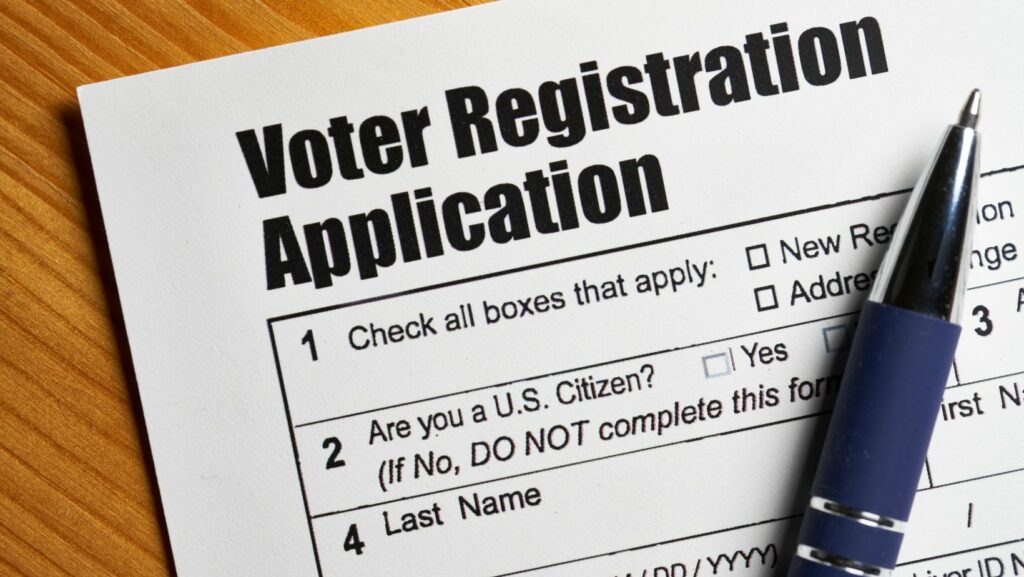Navigating the complexities of voter information can be daunting, especially when inaccuracies arise. The Center for Voter Information (CVI) plays a crucial role in educating voters, but it’s not without its share of complaints. As election seasons intensify, the number of concerns about the CVI’s mailings and communications has grown, prompting many to seek clarity and resolution.
Understanding the nature of these complaints is essential for voters who wish to ensure their voices are heard. From incorrect voter details to unsolicited mail, the issues raised often reflect broader concerns about voter privacy and data accuracy. By examining these complaints, individuals can better navigate the electoral process and safeguard their voting rights.
In addressing these concerns, it’s important to explore how the CVI responds and what steps they take to resolve issues. This insight not only empowers voters but also enhances the transparency and reliability of voter information systems.
Center For Voter Information Complaints
The Center for Voter Information (CVI) operates as a non-profit organization. Its primary aim is to provide voters with essential election-related materials, like information on registration and voting methods. CVI strives to engage individuals who may face challenges accessing accurate election details.
CVI distributes voter guides and mail containing voting information to support voter participation. These materials assist in increasing awareness about local and national elections. CVI uses public records to obtain mailing lists, which can sometimes lead to errors, such as sending information to incorrect addresses. They seek to correct these issues to improve data quality.
Common Complaints About the Center for Voter Information
 Many individuals express dissatisfaction with the Center for Voter Information (CVI) regarding various issues. Understanding these common grievances helps inform improvements in voter outreach efforts.
Many individuals express dissatisfaction with the Center for Voter Information (CVI) regarding various issues. Understanding these common grievances helps inform improvements in voter outreach efforts.
CVI often receives complaints related to inaccurate voter information. Misinformation issues usually involve outdated voter registration details. Errors in voter guides trigger confusion, leaving recipients unsure about what steps to take. Such incidents reduce trust in election materials, affecting voter confidence in the electoral process.
Recipients frequently report problems with unsolicited mailers sent by CVI. Examples include duplicate mailings and correspondence addressed to incorrect or outdated names. These mailers contribute to public frustration and lead to questions about the integrity of voter outreach initiatives. Ensuring precise targeting of mailers can significantly diminish these complaints.
Concerns Regarding Data Privacy
Concerns about data privacy arise from CVI’s reliance on public records for mailing campaigns. Individuals worry about how these records are used and shared, fearing unauthorized access to personal information. These apprehensions highlight the need for transparency in data handling practices to foster voter confidence and safeguard privacy.
Steps Taken by the Organization
 CVI actively evaluates its processes to handle inaccuracies and privacy concerns effectively. They update voter databases regularly to minimize misinformation from outdated records. Staff training enhances accuracy in mailings and voter guides. They also implement stricter data privacy protocols to protect personal information. Outreach programs foster better communication with voters, reducing misunderstandings and errors.
CVI actively evaluates its processes to handle inaccuracies and privacy concerns effectively. They update voter databases regularly to minimize misinformation from outdated records. Staff training enhances accuracy in mailings and voter guides. They also implement stricter data privacy protocols to protect personal information. Outreach programs foster better communication with voters, reducing misunderstandings and errors.
Filing a complaint with CVI involves simple steps to ensure prompt resolution. Affected individuals contact CVI’s customer service via their official website or phone. When submitting complaints, it’s important to provide specific details about the issue, including any erroneous information received. Documentation, such as copies of the mailers, can assist in resolving matters efficiently. CVI reviews each complaint thoroughly, aiming to respond within a specified timeframe. If issues persist, reaching out to state election offices may provide additional support.
Consumer Protection and Legal Considerations
 Addressing voter complaints is crucial for maintaining trust in the electoral process. The Center for Voter Information is committed to improving its practices to ensure accurate and respectful communication with voters. By implementing robust data privacy measures and refining outreach strategies, they aim to minimize errors and enhance voter confidence. Voters are encouraged to report any issues they encounter, knowing their feedback is vital for continuous improvement. Legal frameworks also play a role in safeguarding voter information and ensuring transparency. As CVI continues to adapt and respond to challenges, collaboration with state election offices further strengthens efforts to protect voter interests and uphold the integrity of election-related communications.
Addressing voter complaints is crucial for maintaining trust in the electoral process. The Center for Voter Information is committed to improving its practices to ensure accurate and respectful communication with voters. By implementing robust data privacy measures and refining outreach strategies, they aim to minimize errors and enhance voter confidence. Voters are encouraged to report any issues they encounter, knowing their feedback is vital for continuous improvement. Legal frameworks also play a role in safeguarding voter information and ensuring transparency. As CVI continues to adapt and respond to challenges, collaboration with state election offices further strengthens efforts to protect voter interests and uphold the integrity of election-related communications.



